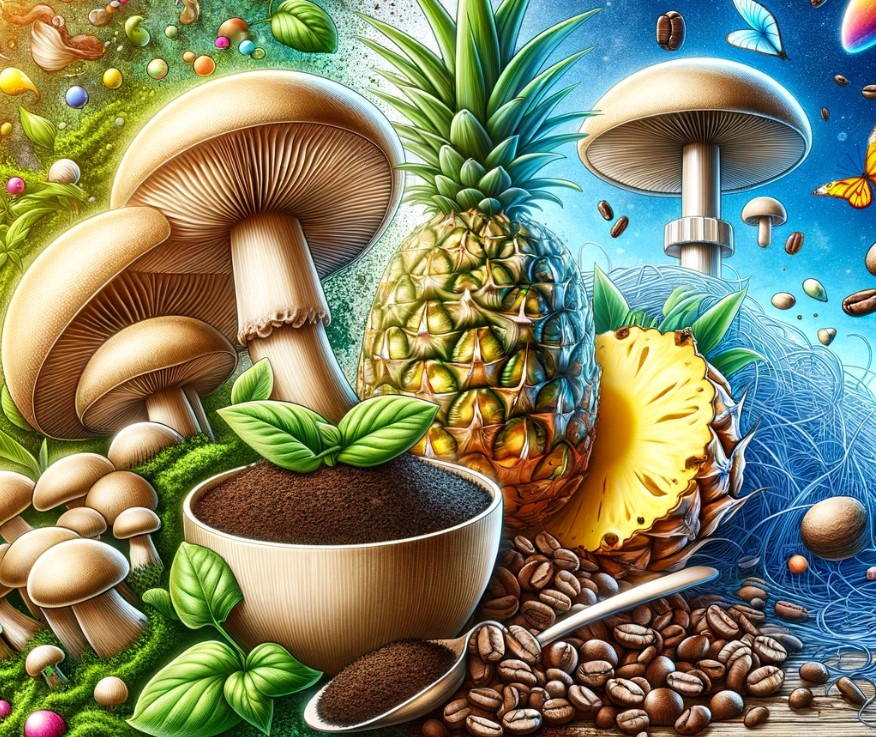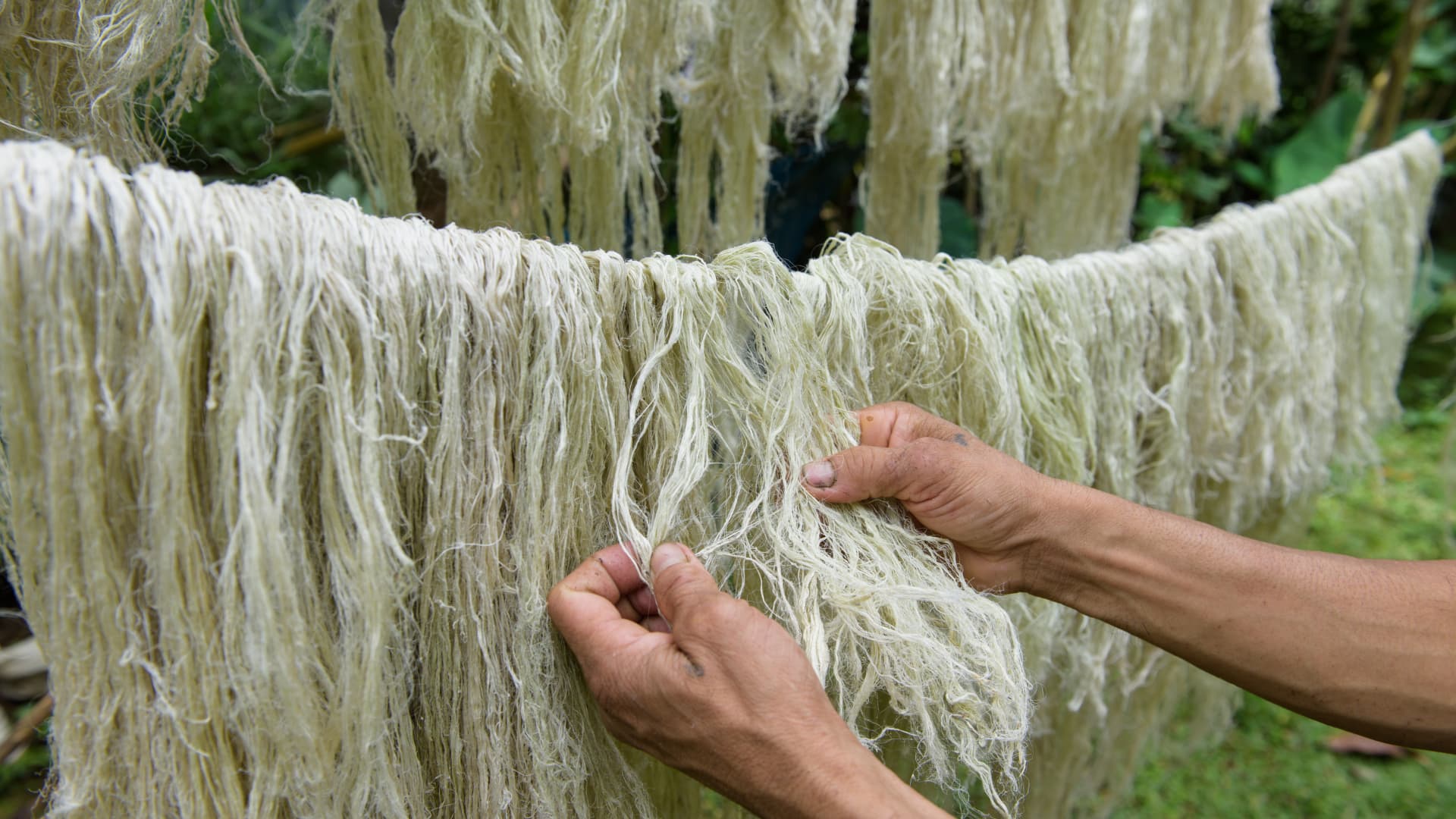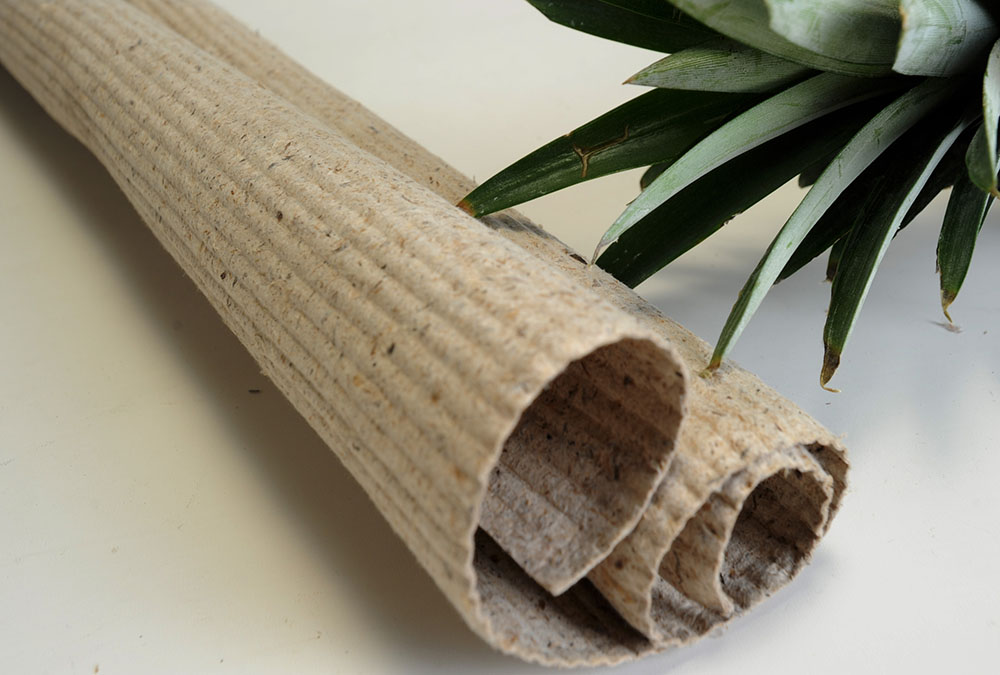
From nature to innovation: how Thailand transforms pineapples, coffee and mushrooms into unique, eco-friendly materials
The researchers presented an innovative material called “MBC (mycelial biocomposite material).” It combines mushroom mycelium, coffee waste and natural pineapple fibers.
Environmentally friendly material MBC: an innovative solution for various industries
This material, obtained from a variety of sources, has unique properties applicable to various industries. Its high sustainability and environmental friendliness make it a promising solution for construction, packaging, textiles and biomedical technologies. In the context of growing interest in environmental sustainability and the need to reduce environmental impact, this innovative material opens new perspectives for creating a more sustainable future.
The study, conducted by Dr. Nattawut Boonyuen and Dr. Pitak Laoratanakul, was published in the journal Mycology. This study revealed that MBC not only have unique properties, but also an important feature – their ability to biodegrade. This means that when the material reaches the end of its life cycle, it can be composted, helping to reduce waste and protect the environment. This discovery is recognized as an important step towards more sustainable production and consumption practices.

Additionally, MBC also proves to be an excellent insulating material in the construction industry, providing effective thermal and sound insulation.This not only decreases energy usage for heating and cooling structures but also aids in resource conservation and diminishes greenhouse gas emissions. Thus, the study highlights not only the potential of MBCs in various industries, but also their important role in sustainable and environmentally responsible production and consumption.
The multifaceted potential of MBC: innovations for packaging, construction, textiles and medicine
Utilizing MBC across diverse industrial sectors fosters innovation and promotes environmentally friendly solutions. Within the packaging sector, MBC can contribute to the development of biodegradable packaging materials, thereby mitigating adverse environmental effects. Similarly, in the construction industry, MBC offers potential applications in which MBC can be used to create insulating materials, providing effective thermal and sound insulation while reducing the environmental footprint of construction.

Moreover, in the textile industry, MBC can be used to create environmentally friendly and durable textile materials, minimizing the use of resources and reducing waste from textile production. In the field of biomedical technology, these materials can be used to create biodegradable medical devices and implants, reducing the risk of environmental pollution and increasing safety for patients.
Thus, MBC represents not only a breakthrough in materials development, but also an important step towards more sustainable and environmentally responsible production. Their unique properties and potential for diverse applications open up new opportunities to create a more sustainable future for our planet.